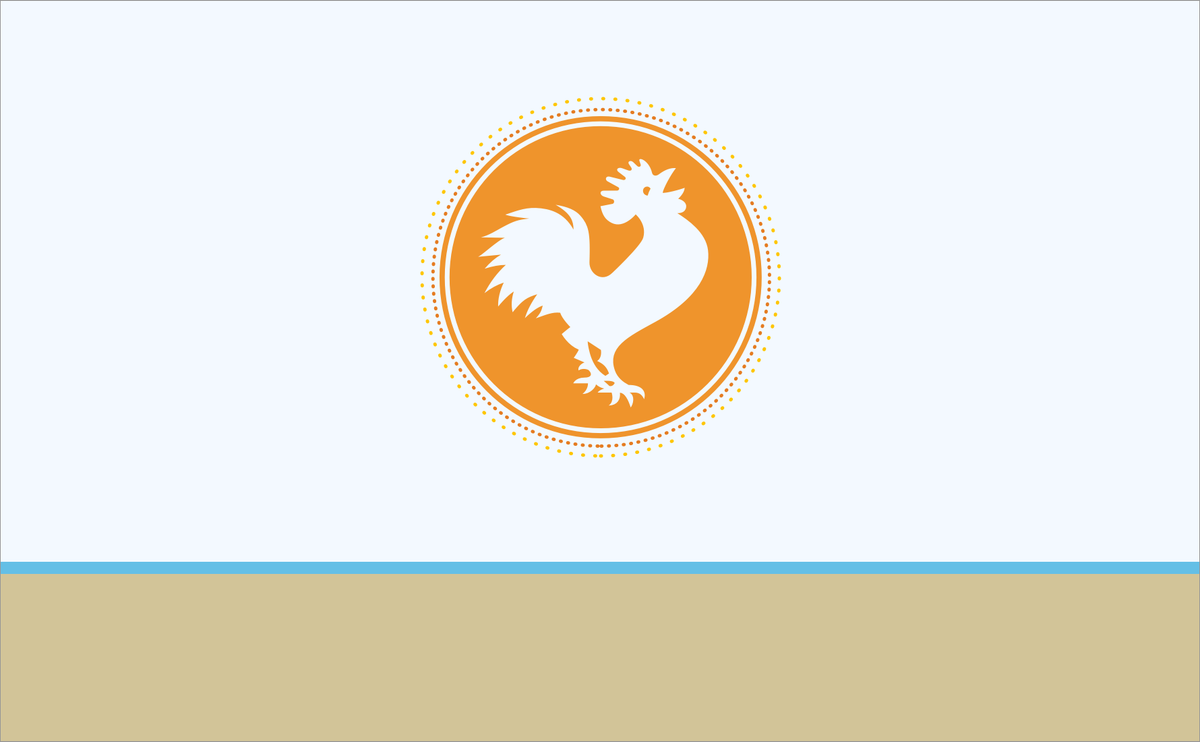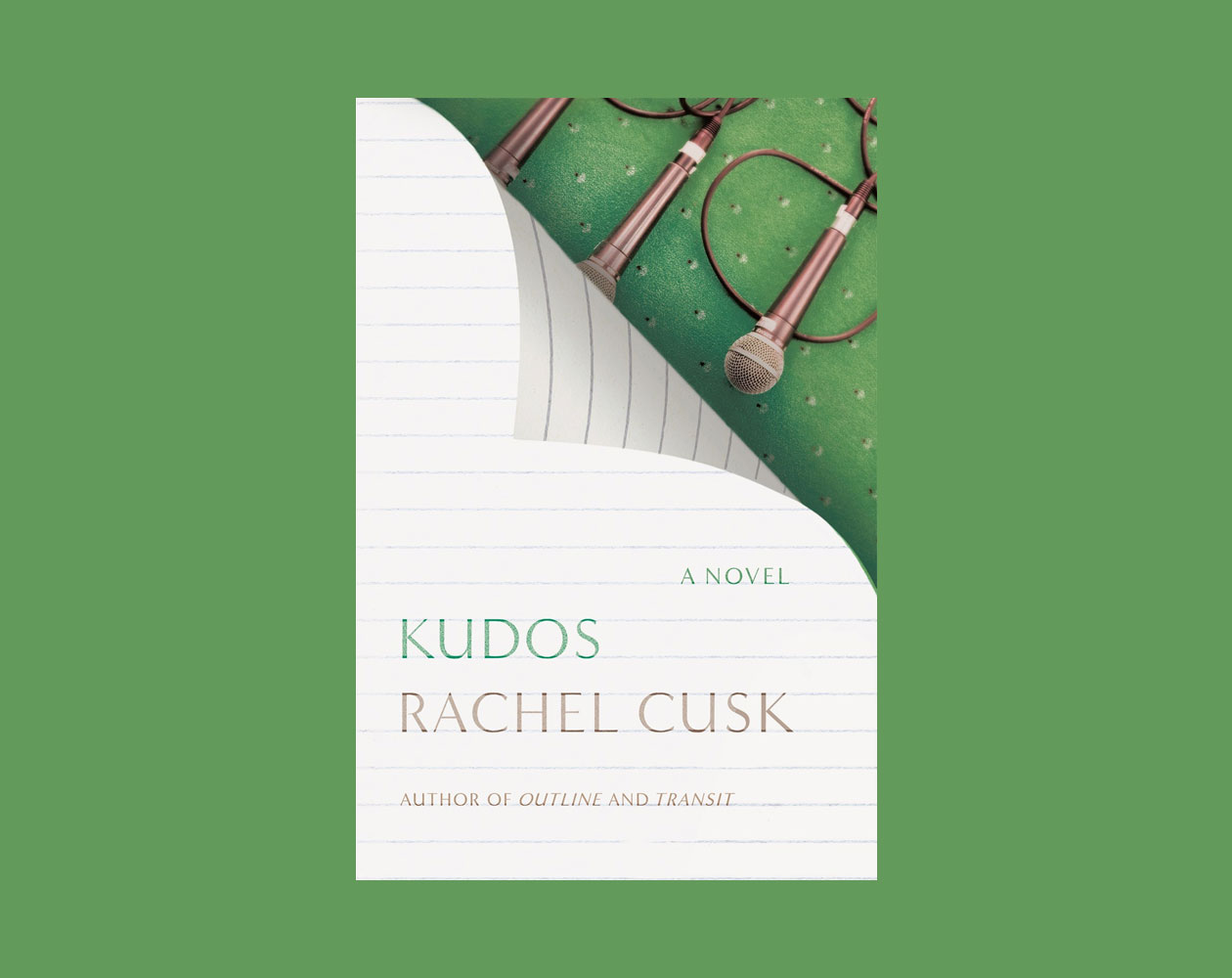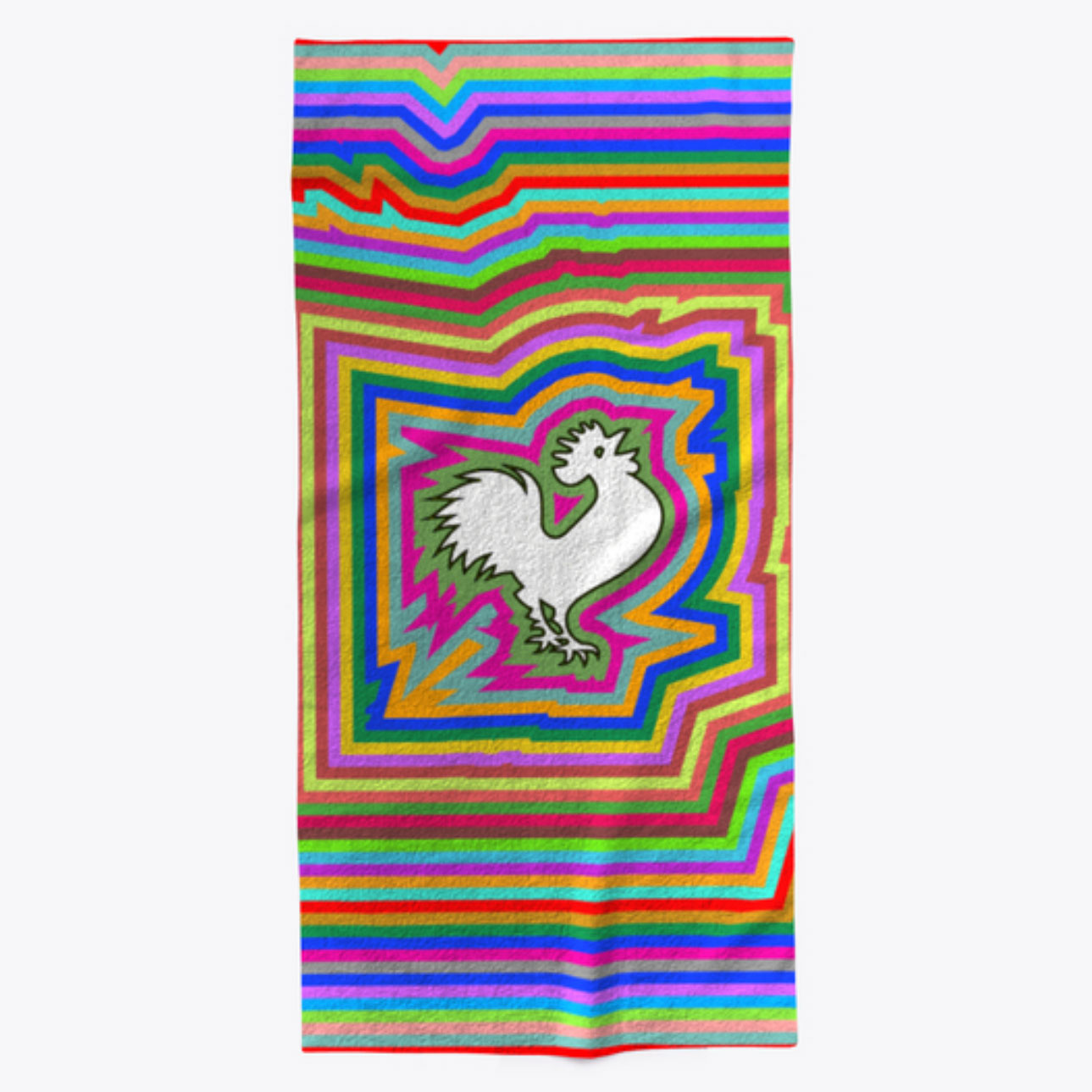The 2018 Rooster Summer Reading Challenge: Week 10
It's the final month in the 2018 Rooster Summer Reading Challenge. Novelist Emma Straub and our own Nozlee Samadzadeh wrap up their discussion of Kudos by Rachel Cusk.

Welcome to the 2018 Rooster Summer Reading Challenge. We’ve selected six Rooster-worthy works of fiction from 2018 to read through August—two per month—and once a week we meet here to discuss our reading progress.
Each month we’re joined by a new judge, who discusses the books with us and then selects which of that month’s two books heads to our summer finale—where you, the readers, decide which novel wins the 2018 Rooster Summer Reading Challenge and an automatic berth in the 2019 Tournament of Books.
(Which kinda counts for a lot, seeing how our 2017 summer winner, Fever Dream, stampeded through the 2018 ToB, eventually taking home the Rooster. By the way, if all of this is new to you, check out this Rooster primer.)
To select our summer books, each of our judges chose a work of fiction they were particularly excited about this year. The other three books were selected by the ToB Committee according to our normal criteria—novels first published in English in the calendar year that we feel are excellent and interesting. (To avoid conflicts, none of the judges were assigned the books they selected personally.)
A special thanks to our Sustaining Members for making another year of the Rooster Summer Reading Challenge possible. Find out why The Morning News and the Tournament of Books depend on your support, and please consider becoming a Sustaining Member or making a one-time donation.
This month we’re reading Kudos by Rachel Cusk and The Friend by Sigrid Nunez, with Emma Straub.
- See the reading list and discussion schedule
- Catch up on previous chats: Tomb Song (first half, second half), An American Marriage (first half, second half), Circe (first half, second half), Census (first half, second half), Kudos (first half)
- Jump into today’s discussion in the comments.
Please note: We receive a cut from purchases made through the book links in this article.
Nozlee Samadzadeh: A puzzle to welcome you back this week: It’s the eighth month of the year and the third month of the Summer Reading Challenge, and today we’re talking about the second half of our fifth book of the summer, which is the third book in a trilogy.
In other words, it’s time to discuss the second half of Kudos by Rachel Cusk with our judge Emma Straub! The second half of Kudos transitions from one monologue at a time to conversations, as Faye attends a dinner with all the writers at the literary event, meets with her editor and translator, and talks to her son on the phone.
In the final pages of the book, Faye arrives at a nude beach, free of conversation at last. As she swims in the ocean, a “huge burly man” on the shore pisses in the ocean while they watch each other. This felt like a microcosm of all the whole book: someone is always taking up all the space in the room while Faye looks on in a detached kind of disgust (again with those descriptions: “his large hairless head had a somewhat glimmering, preternatural appearance”).
Did the ending work for you? It felt particularly gendered to me, and while the book is full of cruel ex-husbands and mansplaining reporters, I found myself guiltily thinking, “But most of the women were terrible bores as well!”
Emma Straub is a bestselling novelist whose books have been published in 20 countries, and the co-owner of Books Are Magic, an independent bookstore in Brooklyn, NY.
Nozlee Samadzadeh is the producer of the Tournament of Books and a developer at Vox Media.
Emma Straub: It’s really true. Oh, Nozlee! I can feel myself getting into trouble with the cool police here. I will say that I read the last page out loud to my husband and five-year-old son, who both gave me strange looks. Faye does seem to have more sympathy for the women she encounters, and that last image is a striking one. I guess the ending worked for me in that I read it as a very real feeling, a feeling that I have had, and that every human woman has had, where a man is doing something disgusting and daring you to watch/challenging you/being a total creep. That golden rope of piss is really something. It is something to end your book on a feeling of disgust. Once again, I completely understand the reader who reads this and thinks that Cusk is a fucking badass mofo. She is!
Nozlee: Kids and divorce come up over and over in the second half of the book, from the woman whose ex-husband repossesses her car and refuses to let their daughter get a haircut, to the scowly Luís (“our most important novelist at the moment” according to another character) who worries deeply and a little self-centeredly about his son’s lack of interest in reading.
What did you make of all the conversations about parenthood? In my head, I imagined Faye, who after all must talk more than she chooses to narrate in the book, repeatedly bringing it up as a topic.

Within the rituals of Europe’s literary culture, Faye finds the human story in disarray amid differing attitudes toward the public enactment of the creative persona, and she begins to identify among the people she meets a tension between truth and representation that causes her to consider questions of acclaim, justice, and the ultimate value of suffering. (Amazon / IndieBound / Powell’s)
Book description excerpted from publisher’s summary and edited for length.
Emma: Well, as a parent, I have certainly learned that children are perpetually in a state of transition, and that there is therefore always something weighing on a parent’s mind. Not all people want to talk about it, of course, but I do, and so that made sense to me. It’s sort of like being fluent in another language, and knowing that you can slip into this other gear with another person is a very quick way to make a conversation more intimate. And Faye does seem curious, if ungenerous with her findings.
Nozlee: I had never thought about that before—that “children are perpetually in a state of transition.” Looking at it that way makes me feel much more generous with the struggling literary parents in the book, even if Faye isn’t.
I do have to complain about one thing. This week’s reading began with a description of the hotel she’s staying in, its “brown carpets and beige walls and rooms standing in a row along the corridors in exactly the same sequence,” and its lobby elevators that open and close and are sometimes vacuumed by the staff, and the cleaners in white aprons, and its guests “letting themselves into their room with the hotel’s plastic key card.” I understand that the impassive tone is meant to indicate that there’s something unnatural to this environment, but without some spark of life from the narrator, it felt like I was being given a description of a hotel and then told to do the work of interpreting it myself. I feel bad that I’m complaining about one of the only scenes we see very directly through Faye’s eyes—maybe I’m not cut out for autofiction.

Emma: I think that autofiction is a very broad umbrella, and if we take the term to mean a blurred line between fiction and autobiography, then, what fun! (Fun for some, again, not fun for all. There is no such thing as One Size Fits All, of course, in anything except Hershey’s Chocolate Bars, but particularly not in books.) For me, the format of this book was the tricky part, not the slipperiness. I want to see the rest of the conversation. Call me old-fashioned. I think the books are perfectly successful as what they are—Cusk’s plan is quite clearly being executed, as she is in total control. Whether or not I personally enjoyed it is perhaps not the point of this conversation until it is the point of this conversation.
Nozlee: I definitely came away liking the idea of seeing a story related from other people’s viewpoints, although maybe I’d appreciate it being applied to something that’s not metafiction about the author’s own industry in addition to being autofiction. My friend Kyle Chayka, a writer and Cusk fan, put it this way:
What I like about the Outline novels is that in the moment they’re super narrative — a story is always being told — but in aggregate they’re not. Radical but also extremely readableJuly 18, 2018
Emma: I actually like the publishing bits most! In terms of the slipperiness, Karl Ove Knausgaard, Maggie Nelson, Chris Kraus…but those writers do not do what Cusk does, pretend to hand over the reins. I guess that’s what is most intriguing about her choice to write the book this way, to write “autofiction” with the narrator seemingly handing over the steering wheel, and the writer pretending to let them.
Nozlee: It’s definitely an exercise in editorial control that I’ve never seen, and one that either works or doesn’t for a given reader—the comments last week were definitely mixed. One commenter said, “I don’t know if I would want to be friends with her in real life, but as a book character, she works.” and well, same. Let us know what you think of the second half of the book in the comments!
That’s it from us on Kudos. Next week we start reading our final book of the Summer Reading Challenge, The Friend by Sigrid Nunez. A book about a dog for the dog days of summer! We’ll see you then.

The Infinity Rooster finds its way to your beach chair, with a towel you could spot from the breakers. New batches print every three days—order yours now. As a reminder, Sustaining Members receive 50 percent off everything at the TMN Store. To find out why we’re asking for your support and how you can become a Sustaining Member, please visit our Membership page.
Subscribe to the Rooster newsletter
You will receive email from The Tournament of Books. Opt out at any time. (View our privacy policy.)
